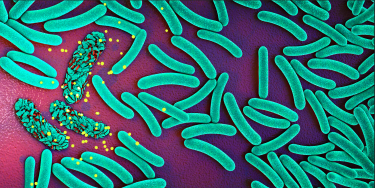Drug Development

Sciences & Technology
Research
By learning to harness light like nature, we’re launching a new era of green chemistry
A new type of ‘photocatalyst’ mimics the way plants get energy from the sun, opening an environmentally friendly way to build complex chemicals like pharmaceuticals

Health & Medicine
Research
AI joins the fight against superbugs
For the first time, Australian scientists have used AI to make ready-to-use proteins that can kill antibiotic-resistant bacteria

Health & Medicine
The new weapon against malaria’s drug resistance
Over the last 50 years, malaria parasites have developed resistance to seven drugs, but a new way to identify future antimalarials holds promise

Health & Medicine
Killing the malaria parasite by blocking its recycling system
An international collaboration has developed a new drug candidate that stops the malaria parasite from breaking down waste, resulting in fatal ‘molecular constipation’ and hope for new treatments

Health & Medicine
Starving the bacterium that causes pneumonia
By targeting an essential nutrition pathway, researchers hope to develop drug targets against the bacterium that causes pneumonia

Health & Medicine
An unexpected find opens a new way to regulate blood pressure
In what could be a new pathway for drug therapies to treat hypertension, a team of brain researchers have discovered that zinc plays a key role in lowering blood pressure

Health & Medicine
New drug target for sugar-coated viruses
Many viruses – including coronaviruses – have a protective outer layer of proteins, fats and sugars. New research shows targeting sugar production has potential for broad-spectrum antiviral drugs

Health & Medicine
Podcast
New targets for epilepsy treatment
Associate Professor Reid is developing new drugs for epilepsy, focussing on both genetics and small molecules, to treat more people with epilepsy

Health & Medicine
Podcasts
Why are there so few drugs to treat viruses?
As coronavirus case numbers surge, University of Melbourne experts explain why we have effective drugs for bacterial diseases, but relatively few for combating viruses

Health & Medicine
Q&A
Q&A: How could COVID-19 drugs work and what’s out there?
Finding existing drugs that are effective against COVID-19 is our best bet toward treatments, and the US buy-up of Remdesivir supplies highlights how urgent the race is